Making the decision to become a multi-location business is a big one. It means more work and complications, but it can also mean more freedom and growth.

Image source
Figuring out whether expansion is right for you can be complicated. This post will help you to systematically think through the potential benefits and considerations so you can find clarity.
Benefits of multi-location businesses
Sometimes, when we think about a business decision that feels overwhelming (like becoming a multi-location business), we lose sight of the potential benefits. We talk ourselves out of the idea because we’re afraid of failure.
But if you’re overly focused on the cons, you miss out on the potential pros. And when it comes to opening additional locations for your contracting business, the list of possible upsides is long.
Here are some of the greatest benefits business owners can experience by establishing multiple locations.
New revenue streams
When you have one location, you can only take on so much work. You’re limited by geography and your team’s bandwidth.

With more than 241 million homes in the US, there are plenty of new customers out there for you to meet!
When you expand to additional locations, you open yourself up to new markets and therefore more revenue. Suddenly, you become the go-to for a whole new neighborhood. You add team members in your new area to quickly serve locals while maintaining a robust presence in your original location.
Expand your local marketing opportunities
When operating a local business, you open up a world of new ways to generate leads.
Location-based marketing takes many forms. for example:
- Ad platforms allow you to target your ads based on location. You can take advantage of Google Local Services Ads, which can land your business at the top of search results in a given geography.
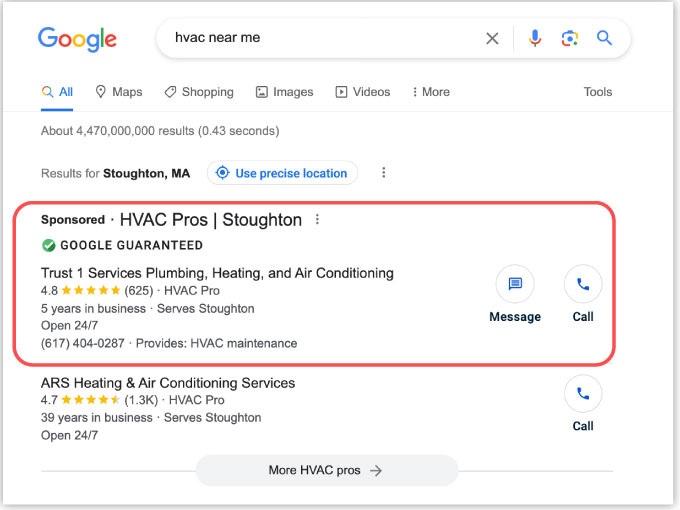
- Geofencing tools allow you to send targeted ads and offers to people within a specified area, meaning you can reach locals with your messaging.
- Local SEO tactics can help your business website rank for prospective customers looking for nearby contractors.
There are plenty of offline marketing tactics your multi-location business can also lean into:
- Publish ads in your new city’s local newspaper
- Hang fliers at nearby businesses
- Establish a visual presence around town with your brick-and-mortar storefront
- Use vehicle wraps and decals

Maintain your autonomy
When you open a franchise, you’re beholden to the strategy and tactics set by the franchise itself. It may dictate where you can operate, how you market yourself, and even what services you’re allowed to offer.
Things are different when you launch additional locations yourself. Becoming a multi-location business owner allows you to remain your own boss. You set the rules and steer the ship, and there’s never any pushback from a larger entity.
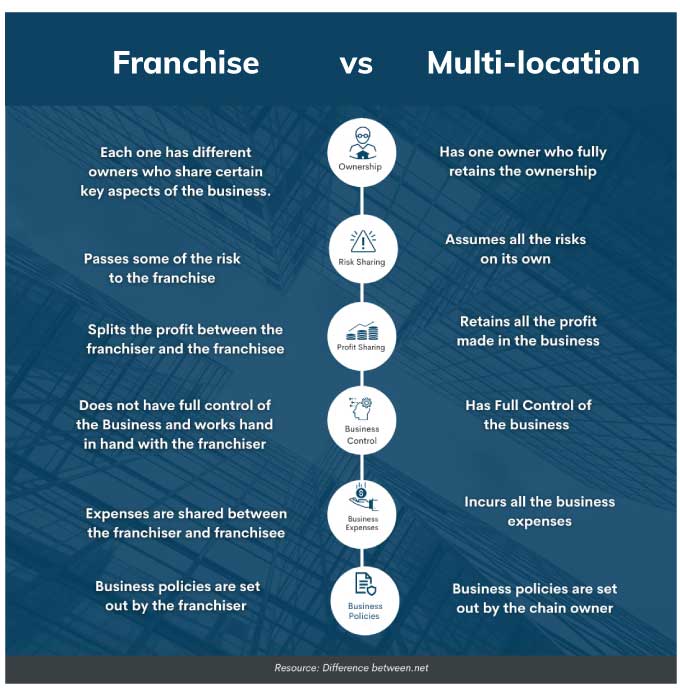
Increase your talent pool
Your current team may be incredible, but there are only so many top-notch professionals in a given geographic area. When you expand your business’s locations, you open yourself up to a new pool of talented prospective employees.
By creating a larger team with more stellar workers, you build a pipeline of great employees you can invest in with training and mentorship. These people will become the future leaders of your business and ensure your workforce remains strong for years to come.

Establish new partnerships
Building relationships with other local business owners can help power referrals and growth. There are only so many related businesses you can partner with in one geographic area; opening up additional locations introduces you to a whole new list of prospective partners.
Benefit from your local status
Consumer surveys show that people like to support local businesses. In 2021, 70% of consumers reported making purchases either in person or online from organizations within their communities.
When you franchise with a big name or remain in one location, you lose the opportunity to become a local business for a new set of prospective customers.
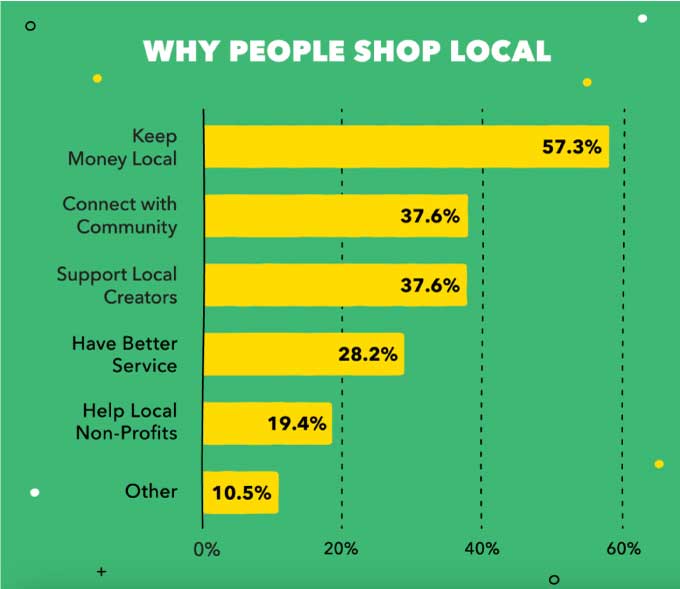
Image source
Boost your authority
Expanding businesses are healthy businesses. Consumers take business growth as a sign of overall strength: You wouldn’t be opening multiple locations if things weren’t going well at your first one!
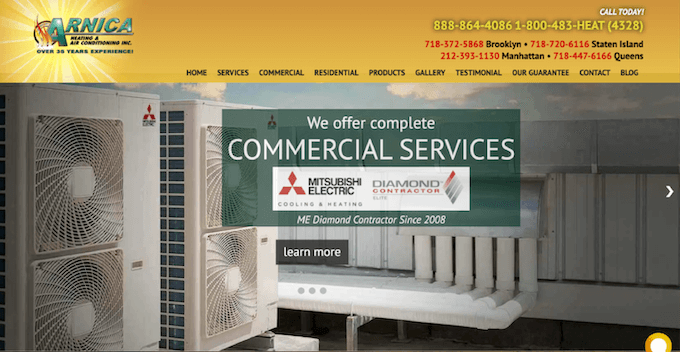
Arnica is a multi-location HVAC business that can tout its 35 years in business.
Becoming a multi-location business can be a subtle signifier to prospects that you’re trustworthy, competent, and efficient. You’ve already built up a roster of happy customers at your first location, which makes it feel like a safer bet to hire you–even if you are the new provider in your additional location.
How to become a multi-location business
Now that we’ve reminded you of the many benefits of multi-location business ownership, perhaps you’re thinking it’s time to take the plunge!
As you work through the strategic and logistical steps to establishing additional locations, here are some tips and considerations to remember.
1. Find your why
Expanding your business is a significant decision, and it’s one you should only undertake for solid, logical reasons.
If you’re considering opening additional locations, it’s probably because your first one is successful. But it helps to look beyond that surface-level reason and explore the deeper motivations behind your urge to expand.
Getting to the heart of your why can help guide your strategy. Which of the benefits above appeal to you most? What emotions or current circumstances are motivating you?

2. Do your research
Armed with an understanding of your underlying drivers, you can research prospective locations and audiences.
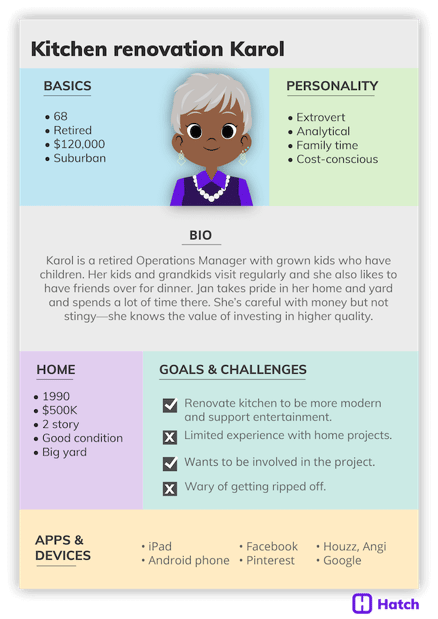
Does the area you have in mind suit your business? Are there enough prospective customers there? What’s the competitive landscape like? Does it have a robust talent pool for you to hire from? Will it be easy to find the resources, support, and infrastructure you need to thrive in this new area?
3. Understand your startup costs
Establishing a multi-location business costs money. As part of your business plan, you’ll want to develop projections of how much you’ll need to get up and running.
There are dozens of costs to consider:
- Legal (business entity formation, licensure, tax considerations, insurance and workers’ compensation, etc.)
- Hiring (recruiting, interviewing, background checks, onboarding, training, establishing benefits offerings, etc.)
- Facilities and infrastructure (office space, additional vehicles, parking, storage space, utilities, hardware, software/tech stack, etc.)
- Marketing/promotion (digital advertising, website changes, establishing local listings, lead aggregators, collateral, signage and vehicle decals, etc.)
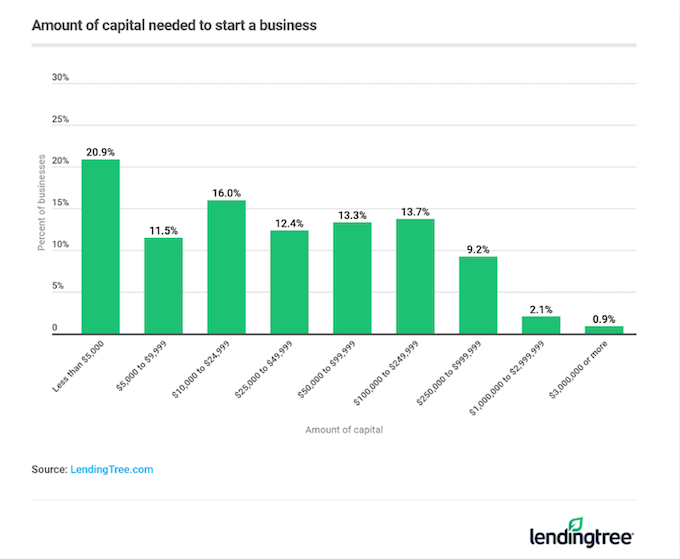 The amount of capital you need to start a business can vary widely, so it pays to sit down and walk through the specific costs you anticipate for your multi-location business. Image source
The amount of capital you need to start a business can vary widely, so it pays to sit down and walk through the specific costs you anticipate for your multi-location business. Image source
Even though these costs can yield ROI, they can also add up quickly, so understand the high and low estimates for your upfront spending. Then, have a clear plan for financing these costs, whether from your savings or with loans.
And remember: Your new location won’t be an overnight success. Do some projections for how long it will take you to reach full revenue potential and how much additional capital you’ll need to stay afloat as you ramp up.
4. Draft your business plan
Once you’ve scoped out the new location, researched, and decided the pros outweigh the cons, you’ll want to draft a business plan.
If you’ve already opened a first location, you’ve probably done this once. But any time you make major business decisions, it helps to detail your action plan. You won’t be able to foresee every potential twist and turn, but giving yourself a guide to follow will make the process a lot smoother.
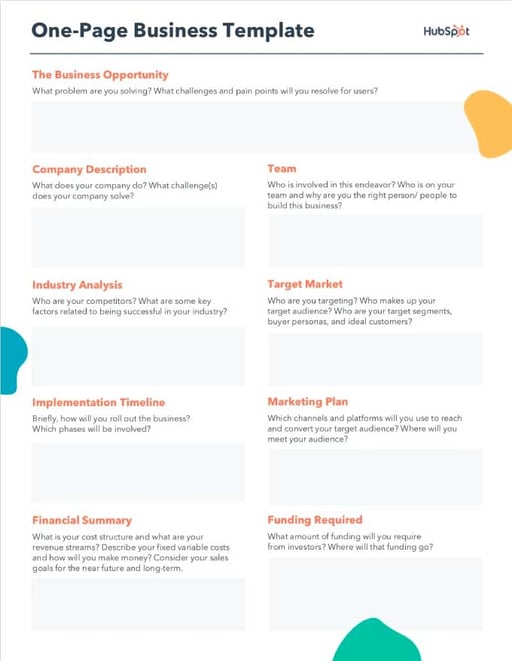
Hubspot's free business plan template is one of many out there!
5. Investigate local opportunities and incentives
For every $100 spent at local businesses, it generates $48 of local economic return. This powerful statistic is why many cities and towns offer incentives to owners who establish a local business in their area.
You may also be eligible for grants or opportunities because of your identity as the business’s owner. Many organizations offer additional support to women and minority founders. If you fall into these categories, look into your options.
The Small Business Administration or your local Chamber of Commerce can help you identify programs that suit your business.
6. Evaluate scalability
If you already have an established business, you also have existing systems and tools to help you serve current clients.
But your existing systems can’t scale to do things like maintain a rapid lead response time, it’s time to evaluate new providers!
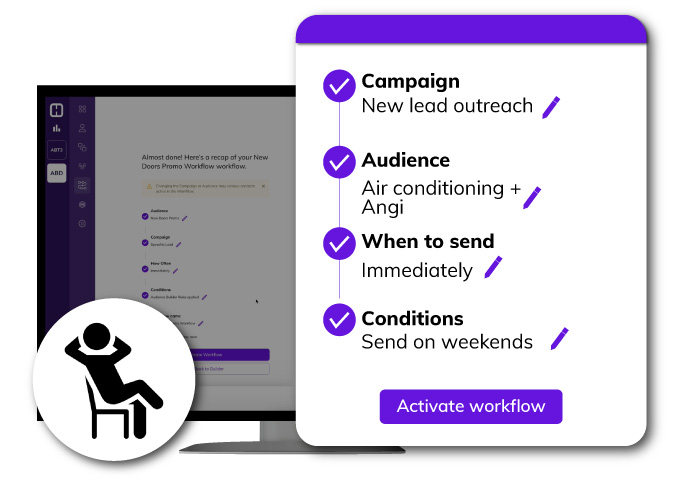
Hatch helps you scale fast and personalized lead outreach.
As you expand, though, your current tools may no longer suit your needs or ambitions. Now is the time to reevaluate all your tools and processes.
Consider all of your tools, including your:tools such as:
- CRM (customer relationship management platform)
- FSM (field service management system)
- Email marketing platform
- Customer communication platform
- Dispatch tools
And processes such as:
Are these systems working as they should? Are they suited to scale with you? Is there a better alternative?
Yes, replacing any legacy system is a lot of work. But when you’re opening a new location, you’re already in a period of transition; now is an ideal time to make a needed switch. Allowing an old system that’s not quite right to become entrenched in your new location’s workflow and operations might seem easier in the short term, but it can cause big headaches down the road.
Things to remember as you pursue your multi-location business journey
Becoming a multi-location business owner takes grit, planning, research, and determination. But if you’ve already successfully built one business location, you know you can do it again.
Don’t lose sight of the hard work you’ve already invested and the strategies you’ve implemented that have led to your success. As you consider your path to multiple locations, keep these things in mind:
Benefits of multi-location businesses:
- Serve a wider audience
- Expand your local marketing opportunities
- Maintain your autonomy
- Increase your talent pool
- Establish new partnerships
- Benefit from your local status
- Boost your authority
How to become a multi-location business:
- Find your why
- Do your research
- Understand your startup costs
- Draft your business plan
- Investigate local opportunities and incentives
- Reevaluate your existing systems
